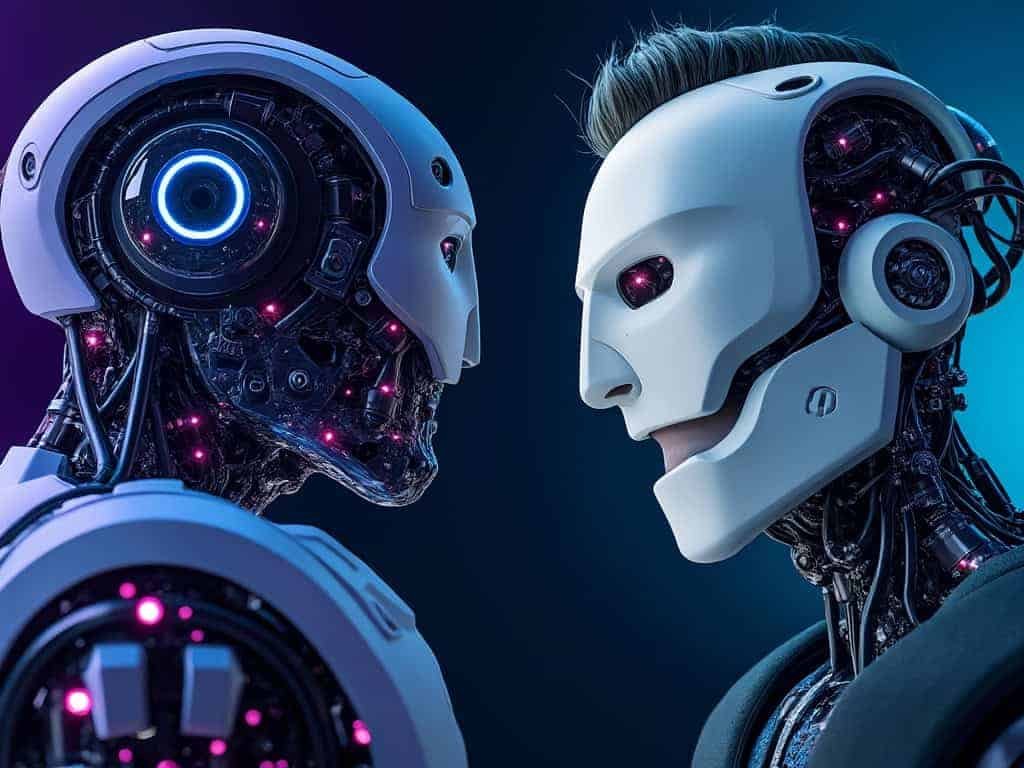A Billion-Dollar Clash in AI
In a dramatic turn of events, Elon Musk, the billionaire tech mogul and CEO of Tesla and SpaceX, has publicly criticized OpenAI’s CEO, Sam Altman, after his massive $97 billion offer to acquire the AI company was rejected. This high-stakes dispute has sparked debates about the future of artificial intelligence, corporate control, and the ethics of AI development.
The Background: Musk’s History with OpenAI
Elon Musk was one of the co-founders of Open AI in 2015, aiming to develop artificial intelligence for the benefit of humanity. However, he left the board in 2018, citing disagreements over its direction. Since then, Open AI has grown rapidly, securing billions in investments and developing cutting-edge AI models like ChatGPT and GPT-4.
Why Musk Wanted to Buy OpenAI
- Reclaiming Influence: Musk has repeatedly voiced concerns over Open AI’s shift from a nonprofit to a for-profit model.
- AI for Humanity: He believes Open AI’s current trajectory is moving away from its mission to create AI that serves all of humanity.
- Competing with Microsoft: OpenAI has received substantial funding from Microsoft, raising concerns that it may prioritize corporate interests over innovation.
- Expansion of AI Technology: Musk envisions an AI ecosystem that fosters more competition and accessibility, reducing monopolistic tendencies.
- Concerns Over Bias: Musk has raised concerns about biases in AI models, advocating for more balanced and open-source solutions.

The Rejected $97 Billion Offer
Musk’s proposal to buy Open AI for a staggering $97 billion was reportedly turned down by Altman and the board.
Key Reasons for Rejection
- Preserving OpenAI’s Independence: The company wants to remain independent and avoid being controlled by a single entity.
- Conflict of Vision: OpenAI’s leadership reportedly believes Musk’s approach to AI development does not align with their vision.
- Existing Partnerships: With strong ties to Microsoft and other investors, OpenAI is already well-funded and does not need Musk’s takeover.
- Ethical Implications: OpenAI’s board has stated that AI advancements should not be dictated by one individual, no matter how influential they are.
- Market Stability Concerns: Experts worry that such a massive acquisition could disrupt the stability of the AI market, impacting innovation and research efforts.

Public Fallout: Musk’s Criticism of Altman
After the rejection, Musk took to social media to express his frustration.
What Musk Said:
- Questioning OpenAI’s Motives: He accused the company of becoming a “closed-source profit-driven entity.”
- Doubts About AI Safety: Musk has warned that OpenAI’s AI models could become dangerous if not properly regulated.
- Calls for Transparency: He demanded that OpenAI release more information about its partnerships and funding sources.
- Urging Government Regulation: Musk has called for stricter AI regulations to prevent monopolization and misuse of AI technologies.
- Warning of AI Misuse: He suggested that without proper oversight, AI advancements could be exploited in unethical or harmful ways.
Industry Reactions and Expert Opinions
This feud has triggered strong reactions across the tech world.
Supporters of Musk’s Standpoint:
- AI Transparency Advocates: Believe OpenAI should be more open about its funding and operations.
- Tech Entrepreneurs: Some argue that Musk’s leadership could push OpenAI towards more ethical AI development.
- Open-Source Enthusiasts: Favor Musk’s idea of making AI technology more accessible to the public.
- Regulators and Policymakers: Some government officials are considering Musk’s calls for increased AI regulation.
- Ethical AI Developers: Many AI researchers agree that increased transparency and public collaboration are needed for responsible AI development.
Critics of Musk’s Approach:
- OpenAI Executives: Defend their decision, stating that Musk’s ownership could centralize AI power.
- AI Ethics Experts: Warn that AI development should not be controlled by billionaires with competing business interests.
- Microsoft & Investors: Back OpenAI’s independence, citing successful AI advancements under its current leadership.
- Business Analysts: Some argue that Musk’s ownership could create conflicts of interest with his other ventures, like Tesla and SpaceX.
- Competitors in AI Research: Some leading AI scientists believe Musk’s criticisms are motivated more by business competition than ethical concerns.
The Growing AI Power Struggle
The rejection of Musk’s offer highlights the larger battle for dominance in the AI industry.
The Key Players in AI
- OpenAI: Backed by Microsoft, leading in generative AI development.
- Google DeepMind: A strong competitor with its own advanced AI research.
- Meta AI: Facebook’s AI division working on open-source AI models.
- xAI (Musk’s Venture): A new AI company aiming to create “truthful AI.”
- Amazon’s AI Research: Amazon is investing heavily in AI, competing in cloud-based AI solutions.
- Apple’s AI Developments: Apple is rumored to be developing its own AI models to enhance its ecosystem.
Potential Risks of AI Monopoly
- Reduced Competition: If AI power is concentrated in a few hands, innovation may slow down.
- Ethical Concerns: AI governance must balance profit and ethical considerations.
- Regulation Challenges: Governments worldwide are debating how to regulate AI effectively.
- Data Privacy Issues: Large AI corporations collecting vast amounts of user data raises concerns about privacy breaches.
- Bias in AI Decision-Making: AI systems reflecting biases from their training data could lead to unfair and unethical consequences.
What’s Next for OpenAI and Musk?
While OpenAI continues to develop advanced AI technologies, Musk is focusing on his own AI venture, xAI, which aims to create “truthful AI.”
Possible Future Scenarios:
- Musk Increases His Offer: He could return with an even bigger bid to sway OpenAI’s leadership.
- Legal Action: Musk might explore legal avenues to challenge OpenAI’s practices.
- Expansion of xAI: Musk could accelerate the development of his own AI company to compete directly with OpenAI.
- Government Intervention: Regulatory bodies might step in to oversee AI’s rapid commercialization.
- Global AI Policy Changes: International organizations could establish new guidelines for AI ethics and business practices.
- Public Awareness Movements: Increased public demand for AI transparency and ethical governance could influence industry decisions.

A Turning Point in AI Industry
The battle between Elon Musk and OpenAI marks a significant moment in AI history. Whether Musk’s criticism will influence OpenAI’s future decisions or whether the AI industry will shift towards greater transparency remains to be seen. One thing is clear: the race for AI dominance is far from over, and this dispute is just the beginning of a larger battle for the future of artificial intelligence.
As AI technology continues to evolve, it will be crucial for policymakers, tech leaders, and the public to stay informed and engaged in shaping its direction. The coming years will determine whether AI serves the interests of humanity or remains in the hands of a few powerful corporations.
Stay tuned as the story unfolds!
California Enacts Regulations to Control Artificial Intelligence Usage in Media






